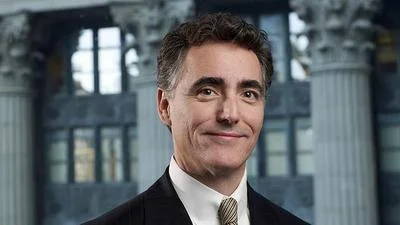Howard Husock is almost as shocked that seven Chicago aldermen are pushing to bring more affordable family housing to their working-class neighborhoods as he is that such programs still even exist given what he sees as their overwhelming ineffectiveness.
Husock, the vice president for research and publications at the Manhattan Institute, a political and economic think tank in New York, has long been a critic of such programs.
“Working-class neighborhood residents have always felt risks from these kinds of programs,” Husock told the Chicago City Wire. “Research shows people just a couple steps up the ladder are leery. They worry that with all the things they’ve had to do to move into the neighborhood and have a good life, those just placed there might not fit in.”

Howard Husock
| Manhattan Institute
The plan, proposed by Aldermen Deborah Mell, John Arena, Ameya Pawar, Joe Moreno, Chris Taliaferro, Carlos Ramirez-Rosa and Harry Osterman through their Keeping the Promise Ordinance, would pump hundreds of millions into the program in the name of ending segregation and slowing gentrification.
At least 50 Chicago Housing Authority-sponsored units would be built in each of the aldermen's wards by the time their current terms end if the plan passes.
The plan faces growing resistance by longtime residents.
“I can’t remember another example of elected officials wanting more Section 8 housing in their neighborhoods over the objections of residents,” Husock said. “Typically, there’s a lot of friction.”
The Chicago plan has been no exception. Pawar recently questioned whether the concerns of residents should even be considered if the tone of their objections at any point turns to what he deemed “racist” arguments.
That’s a different view from the way Husock sees things.
“There’s a record of backlash coming from working-class residents,” he said, adding that the situation is much more complex than at least some of the aldermen might suggest.
“It’s not a matter as simple as racism, because you’ve seen the same backlash in South Side neighborhoods populated by working-class blacks,” Husock said. “They’ve worked hard to get there, and it seems there’s this 'the same problems are finding me’ kind of thinking. Some things may ascribe to race, but it’s more of a social class issue.”
In the end, Husock said much of what happens after such programs have been instituted boils down to those deemed qualified for residency.
“There is a research that shows that some residents from public housing projects can do well, particularly if their kids are young when families make the move,” he said. “But there’s also research that shows that older kids making similar moves tend to have a harder adjustment period.”
The aldermen have expressed confidence that they have the votes needed to push the measure along and have set Monday as the target vote date.
.jpg)




 Alerts Sign-up
Alerts Sign-up